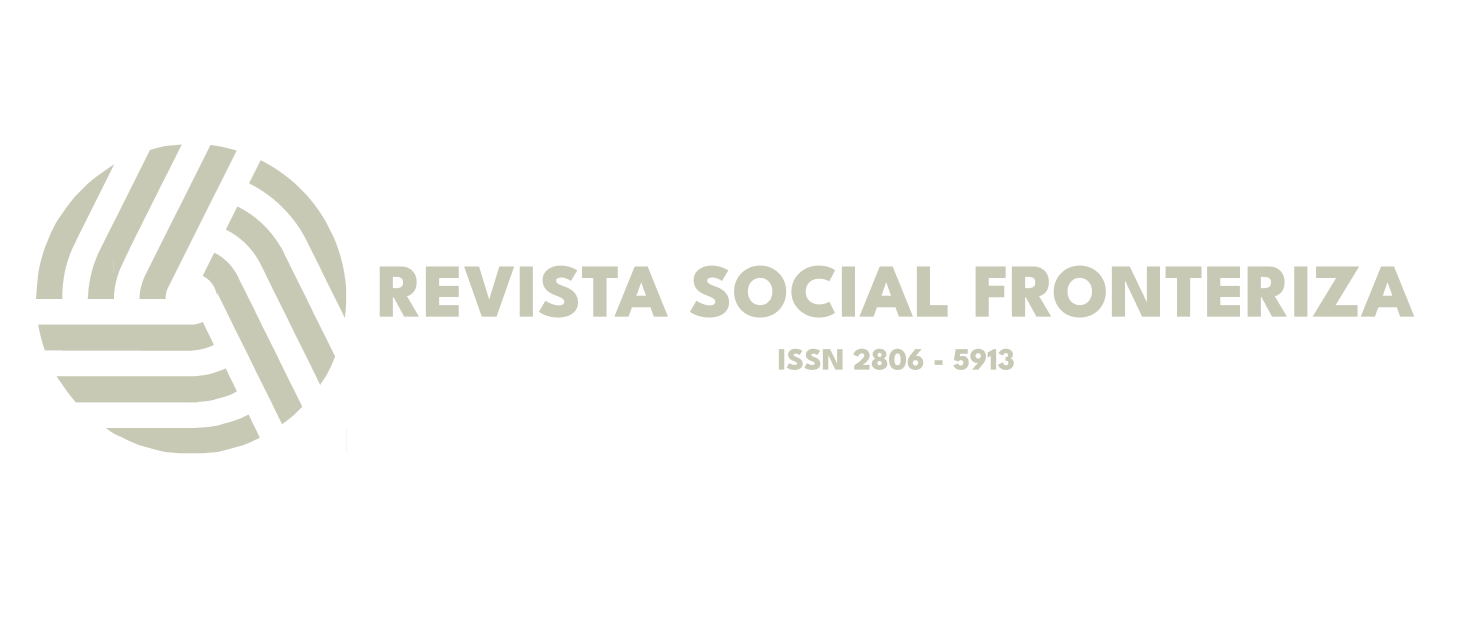The use of gamification in formative assessment of vocabulary learning
DOI:
https://doi.org/10.59814/resofro.2024.4(6)506Palabras clave:
Gamification; strategy; vocabulary; formative assessment.Resumen
The objective of this research was to evaluate the use of gamification in the formative assessment of vocabulary learning in seventh grade students of EGB of the Unidad Educativa Fiscomisional Mons. Luis Alfonso Crespo Chiriboga. The study population consisted of 48 students of 7th grade EGB of A and B classes. This work used a quasi-experimental design to with a cross-sectional descriptive, analytical and explanatory scope, in this sense, the present study established the type of relationship that exists between the variables raised, to understand the circumstances or situations in which the gamification methodology affects the learning of vocabulary. During the research four types of gamification applications were used: Wordwall, Kahoot, Blooket and Quizizz. The techniques and instruments used to collect data and criteria were the pre-and post- test, the former was applied before starting the teaching process and the latter was carried out at the end of the process. Likewise, the survey was used, which was applied at the beginning of the teaching process to gain better insights into EFL students’ beliefs about the incorporation of games as a strategy to assess vocabulary. The results showed that the employment of gamification was effective in students' vocabulary learning. Therefore, applying gamification in the classroom can be a promising and innovative strategy for educators to engage not only their students' attention, or receive instant feedback, but also to develop students learning skills such as self-regulation, autonomy, or to increase the motivation.
Descargas
Métricas
Citas
Ahmed, A., et al. (2022). An Empirical Study on the Effects of Using Kahoot as a Game-Based Learning Tool on EFL Learners’ Vocabulary Recall and Retention. Education Research Internation, n/a - n/a. doi:https://doi.org/10.1155/2022/9739147
Beltran, L., & Velez, G. (2024). Quizlet as a technological tool to enhance english vocabulary for seventh graders at escuela de educación básica Santa Maria de la Esperanza. [ Tesis de Licenciatura, Universidad Estatal Península de Santa Elena]. Repositorio Institucional https://repositorio.upse.edu.ec/handle/46000/11004.
Castillo, L. (2022). Using Genially game for enhancing EFL reading and writing skills in online education. International Journal of Learning, Teaching and Educational Research, 340-354. doi:https://doi.org/10.26803/ijlter.21.1.19
Chavarría, F., & Avalos, K. (2023). Gamification in education for the formative assessment process. Ciencia Latina Revista Científica Multidisciplinar, 9180-9194. doi: https://doi.org/10.37811/cl_rcm.v7i1.5044
Çil, E. (2021). The Effect of Using Wordwall.net in Increasing Vocabulary Knowledge of 5th Grade EFL Students. Language Education & Technology(LET Journal), 21-28. doi:https://orcid.org/0000-0002-3949-1316
Education First. (2023). EF English Proficiency Index. Suiza: Signum International AG.
Hamedi, A., et al. (2022). The Effectiveness of Using Formative Assessment by Kahoot Application on Iranian Intermediate EFL Learners’ Vocabulary Knowledge and Burnout Level. Journal of new advances in English Language Teaching, 769. doi:10.22034/jeltal.2022.4.1.5
Ibad, W., et al. (2023). Comparing Kahoot, Quizizz, And Wordwall in EFL Reading Class. Eduvest –Journal of Universal Studies.
Khoshsima, H., & Khosravi, M. (2021). Vocabulary Retention of EFL Learners through the Application of ANKI, WhatsApp and Traditional Method. Journal of Foreign Language Teaching and Translation Studies, 77-98. doi:10.22034/EFL.2022.325424.1136
Kıyançiçek, E., & Uzun, L. (2022). Gamification in English Language Classrooms: The Case of Kahoot! Science, Education, Art and Tecnology Journal (SEAT Journal), 1-13.
Kuan, Y., et al. (2024). Implementing and evaluating the impact of English vocabulary activities based on digital games. Journal of Awarenes, 149-158. Retrieved from https://doi.org/10.26809/joa.2109
Maghawry, S. (2021). A Gamification Program to Enhance Speaking Skills. Journal of The Faculty of Education- Mansoura University, 4.
Nyahuye, T., & Steyn, A. (2022). Gamification to Increase Undergraduate Student's team skills. ICT Education, 11–128. doi:https://doi.org/10.1007/978-3-031-21076-1_7
Panmei, B., & Waluyo, B. (2022). The Pedagogical Use of Gamification in English Vocabulary Training and Learning in Higher Education. Education Sciences . Retrieved from https://doi.org/10.3390/educsci13010024
Pintado, K. (2023). Gamification and formative assessment in English learning among superior basic education students at a public institution of Loja. Loja .
Ramos, C. (2021). Diseños de Investigación. Revista CienciAmérica, 5. doi:http://dx.doi.org/10.33210/ca.v10i1.356
Rashid, et al. (2022). The Importance of Vocabulary in Teaching and Learning in Applied Linguistics. Linguistics and Culture Review, 541-550.
Şad, S. N., & Özer, N. (2019). Using Kahoot! as a Gamified Formative Assessment Tool: A Case. International Journal of Academic Research in Education, 43-57. doi:10.17985/ijare.645584
Sanchez, C. (2019). Gamification: A new approach to Ecuadorian education. Docentes 2.0 Tecnologia Educativa. Retrieved from https://orcid.org/0000-0003-4831-5813
Sanchez, C. (2022). Gamification in teaching practice. Revista EVSOS, 3-12. doi: https://doi.org/10.57175/evsos.v1i1.4
Sartika, et al. (2023). “The use of Blooket: A Study of Student’s Perception Enhancing. Academic Journal of English Language and Education, 357-368. doi:DOI:10.29240/ef.v621.5242
Schmitt, N., & Barclay, S. (2019). Current Perspectives on Vocabulary Teaching and Learning. Cham: Springer International Handbooks of Education. doi:https://doi.org/10.1007/978-3-319-58542-0_42-1
Sin, O. K., & Mohamad, S. (2020). Assessing Effect of Gamification for Primary Pupils’ English Learning Performance. Innovative Teaching and Learning Journal, 71-88.
The use of Blooket: A Study of Student’s Perception Enhancing English. (2023). ENGLISH FRANCA : Academic Journal of English Language and Education, 357-368. doi:http://dx.doi.org/10.29240/ef.v7i2.7406
Trejo, H. (2020). Experiencia de gamificación para la enseñanza de un segundo idioma. Educación y Educadores, 611-633. doi:http://orcid.org/0000-0002-8703-0629
Ulug’bekovna, I. (2023). The importance of vocabulary in teaching English and methodical organization of teaching English vocabulary. World scientific research journal, 111-115. Retrieved from http://wsrjournal.com/index.php/wsrj/article/view/2454
Waluyo, B., & Tran, H. M. (2023). Implementing Gamified Vocabulary Learning in Asynchronous Mode. TIEFLIN Journal, 136-156.
doi:http://orcid.org/0000-0003-1919-2068
Yavuz, F. et al. (2020). The effect of online gamification on EFL learners’ writing anxiety. World Journal on Educational Technology: Current Issues, 62-70. doi:https://doi.org/10.18844/wjet.v12i2.4600
Publicado
Cómo citar
Número
Sección
Licencia
Derechos de autor 2024 Leonela Cumanda Pinta Villacres, Verónica Patricia Egas Villafuerte, Mirella del Pilar Vera Rojas

Esta obra está bajo una licencia internacional Creative Commons Atribución-NoComercial-SinDerivadas 4.0.




































